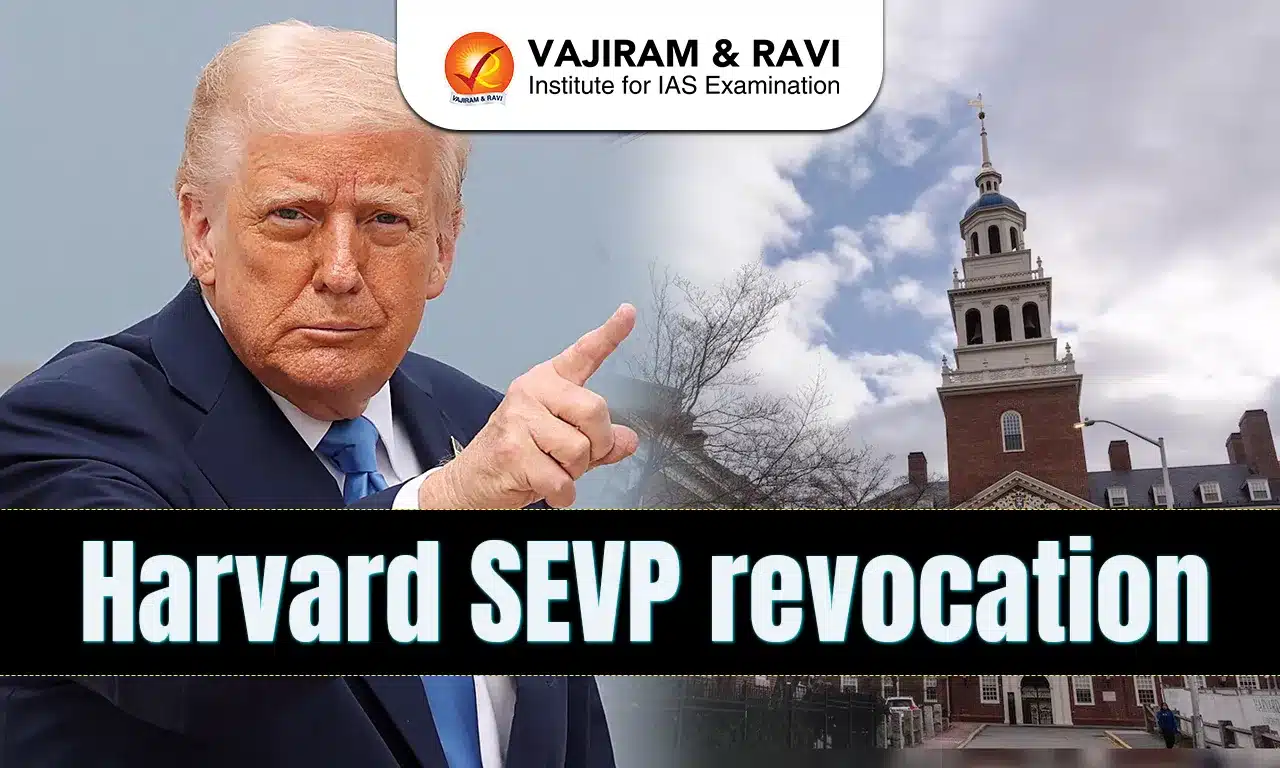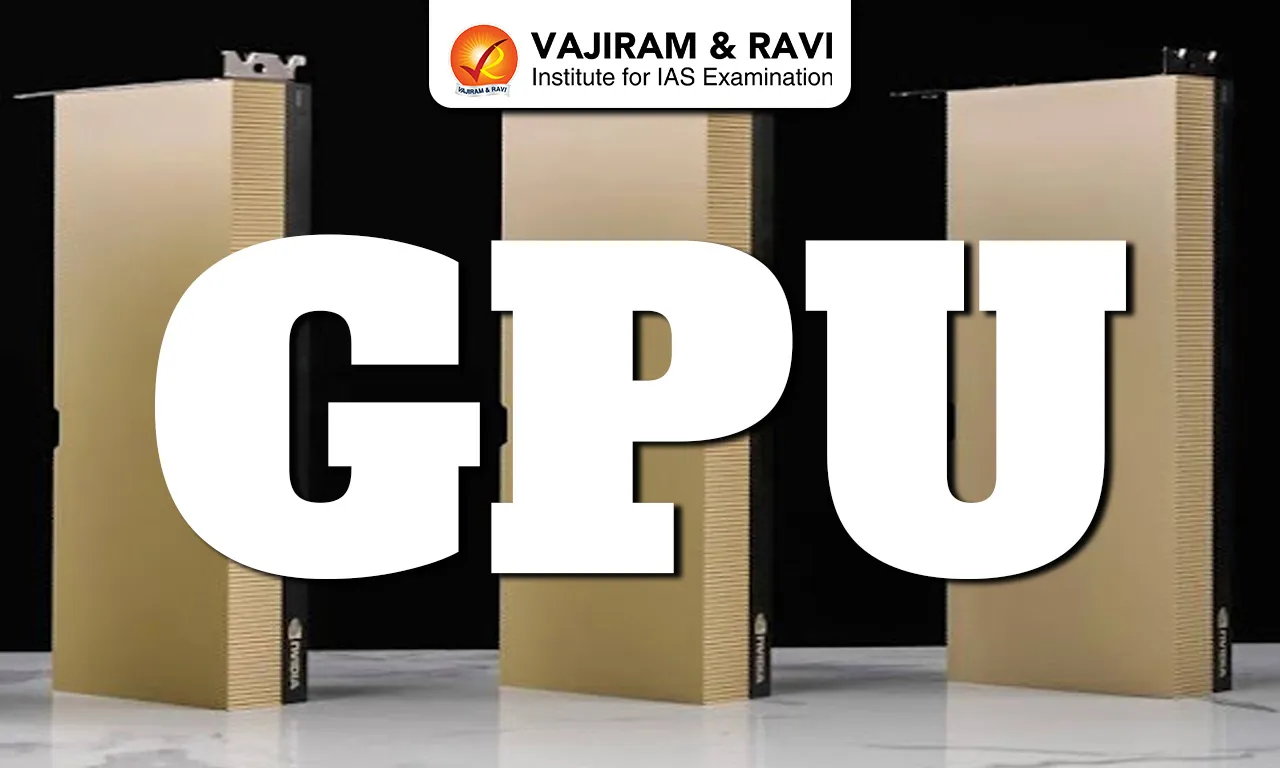Harvard SEVP Revocation Latest News
- A US federal judge temporarily blocked the Trump administration’s move to revoke Harvard University’s ability to enrol international students, just a day after the policy was announced.
- Harvard called the Trump administration’s decision unconstitutional and warned of its severe impact on the university and its global student body. The conflict began when Harvard refused the administration’s demands to alter its hiring, admissions, and curriculum policies.
Student and Exchange Visitor Program (SVEP)
- SEVP (Student and Exchange Visitor Program) certification, issued by the U.S. Department of Homeland Security (DHS), allows educational institutions to enrol international students holding F-1, M-1, or J-1 visas.
- The F-1 visa is for students attending accredited U.S. colleges or universities, or studying English at an accredited institute.
- The M-1 visa is for students enrolled in non-academic or vocational programs.
- The J-1 visa is for exchange visitors participating in educational and cultural exchange programs.
- Without SEVP certification, institutions cannot issue Form I-20 — a crucial document required for international students to obtain and maintain legal student status in the U.S.
Revocation of Harvard’s SEVP Certification: Reasons and Allegations
- Allegations by the DHS
- The U.S. Department of Homeland Security (DHS) accused Harvard of:
- Creating an “unsafe” environment for Jewish students
- Promoting “pro-Hamas sympathies”
- Implementing “racial” diversity, equity, and inclusion (DEI) policies
- Allegedly coordinating with the Chinese Communist Party
- The U.S. Department of Homeland Security (DHS) accused Harvard of:
- Official Statement by DHS
- As per the Homeland Security, enrolling international students is “a privilege, not a right”.
- Harvard lost its SEVP certification for “failing to adhere to the law.”
- Conditions for Reinstatement
- DHS gave Harvard 72 hours to comply with six conditions, demanding:
- Records of illegal, violent, or threatening activity by non-immigrant students over the past five years
- Evidence of any deprivation of rights involving non-immigrant students
- Disciplinary records of all non-immigrant students
- Audio/video footage of protest activity involving non-immigrant students
- These demands aim to assess Harvard’s compliance with federal regulations regarding campus safety and foreign student oversight.
- DHS gave Harvard 72 hours to comply with six conditions, demanding:
Impact on Harvard’s International Students
- Students Currently Affected
- The decision impacts 6,793 international students currently enrolled at Harvard.
- If the restraining order is lifted, these students may be forced to transfer to other U.S. institutions or leave the country.
- Visa and Departure Rules
- F-1 visa holders typically have a 60-day grace period after completing their studies.
- J-1 visa holders are granted 30 days.
- If student status is terminated due to a violation, departure may be required immediately.
- Uncertainty Around Grace Period
- It is unclear how much time DHS would allow Harvard students to transition. Experts believe those graduating soon may be granted some leeway.
- Future Admissions Blocked
- With SEVP certification revoked, DHS may deny visas to students intending to enroll at Harvard, effectively halting new international admissions.
Impact on Harvard University
- Major Financial Loss
- International students are a key revenue source for Harvard, paying higher tuition and fees without federal aid.
- For the 2024–25 academic year, each student contributes approximately $82,866.
- With 6,793 international students, the estimated annual revenue from them is around $562 million.
- Growing International Presence
- Over the last four years, the number of international students at Harvard has grown by 26.75%.
- As of September 2024, students came from 146 countries, with China, Canada, and India accounting for 40% of the total international student population.
- Broader Economic Impact
- Beyond Harvard, international students significantly benefit the U.S. economy.
- As per a report, in 2023–24, they contributed approximately $43.8 billion through tuition, fees, and living expenses.
Why the Trump Administration Is Targeting Harvard and Other Elite Universities
- Executive Order on Campus Free Speech
- In March 2025, President Trump signed an executive order on campus free speech — which he deemed a “historic action to defend American students and American values” that have “been under siege” on campuses.
- Campus Protests as a Trigger
- The order followed nationwide student protests against Israel’s war in Gaza, which the administration claimed led to harassment of Jewish students, prompting federal intervention.
- Long-Standing Conservative Grievances
- The administration’s actions also stem from deeper ideological tensions.
- For decades, conservatives have accused elite universities of:
- Promoting liberal bias and marginalising conservative voices
- Overemphasising diversity, equity, and inclusion (DEI) initiatives
- Acting as strongholds of “wokeness” that conflict with traditional American values
- Wider Crackdown on Elite Institutions
- Harvard is not alone. Other prestigious universities like Brown, Cornell, and Columbia have also faced scrutiny, reflecting a broader conservative effort to reshape higher education policies and culture.
Harvard SEVP Revocation FAQs
Q1. Why did Trump revoke Harvard’s SEVP certification?
Ans. DHS cited unsafe campus conditions and political concerns, including Harvard’s refusal to change policies on diversity and hiring.
Q2. What is SEVP certification?
Ans. It allows U.S. universities to enroll international students and issue I-20 forms required for visa and legal student status.
Q3. How are international students affected?
Ans. They risk deportation or forced transfers if Harvard’s certification is permanently revoked, affecting visa and legal status.
Q4. What’s the financial impact on Harvard?
Ans. Harvard stands to lose around $562 million annually from 6,793 international students if SEVP is not reinstated.
Q5. Why is the administration targeting Harvard?
Ans. Long-standing conservative resentment over liberal bias, DEI policies, and recent pro-Palestine campus protests triggered federal scrutiny.
Last updated on February, 2026
→ UPSC Notification 2026 is now out on the official website at upsconline.nic.in.
→ UPSC IFoS Notification 2026 is now out on the official website at upsconline.nic.in.
→ UPSC Calendar 2026 has been released.
→ UPSC Final Result 2025 is expected to be released in the second week of April 2026.
→ Check out the latest UPSC Syllabus 2026 here.
→ Join Vajiram & Ravi’s Interview Guidance Programme for expert help to crack your final UPSC stage.
→ UPSC Mains Result 2025 is now out.
→ UPSC Prelims 2026 will be conducted on 24th May, 2026 & UPSC Mains 2026 will be conducted on 21st August 2026.
→ The UPSC Selection Process is of 3 stages-Prelims, Mains and Interview.
→ Prepare effectively with Vajiram & Ravi’s UPSC Prelims Test Series 2026 featuring full-length mock tests, detailed solutions, and performance analysis.
→ Enroll in Vajiram & Ravi’s UPSC Mains Test Series 2026 for structured answer writing practice, expert evaluation, and exam-oriented feedback.
→ Join Vajiram & Ravi’s Best UPSC Mentorship Program for personalized guidance, strategy planning, and one-to-one support from experienced mentors.
→ Check UPSC Marksheet 2024 Here.
→ UPSC Toppers List 2024 is released now. Shakti Dubey is UPSC AIR 1 2024 Topper.
→ Also check Best UPSC Coaching in India
Tags: harvard sevp revocation mains articles upsc current affairs upsc mains current affairs




















